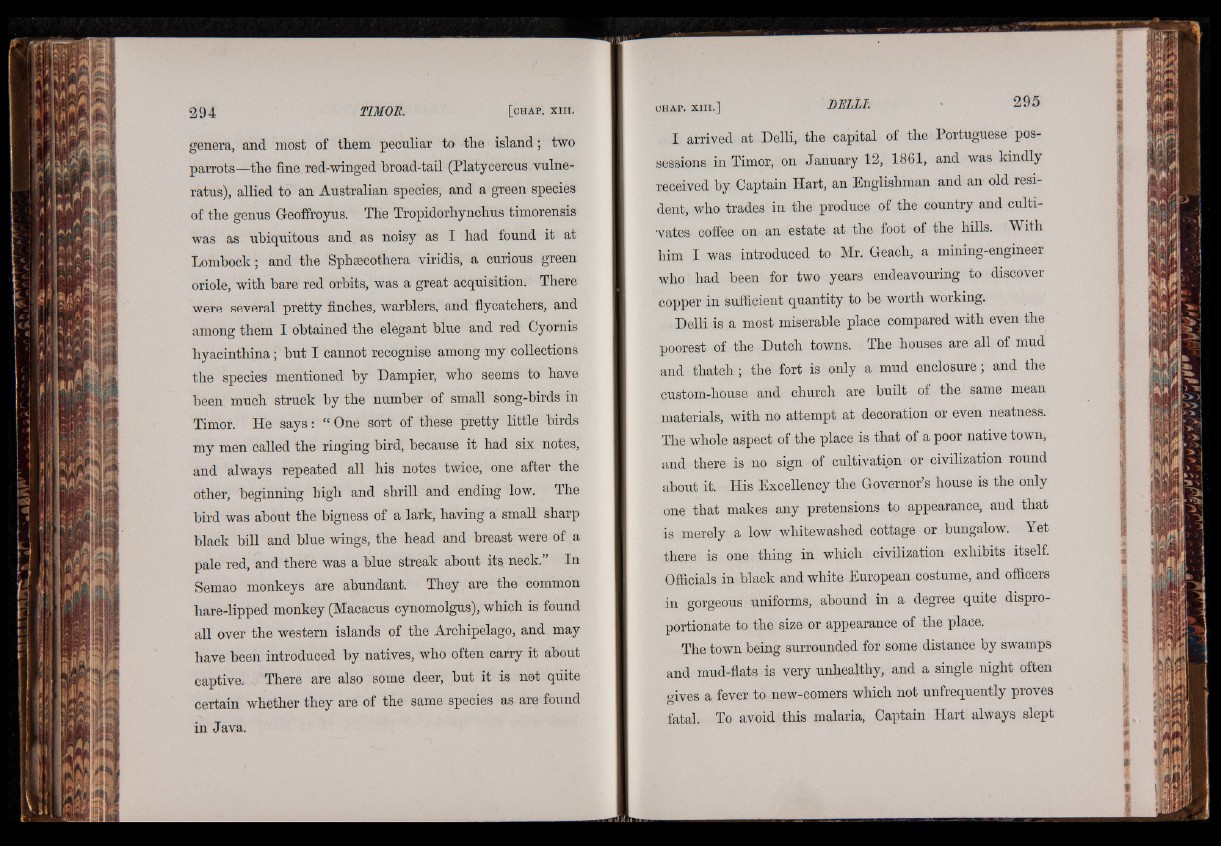
genera, and most of them peculiar to the island; two
parrots—the fine red-winged broad-tail (Platycercus vulne-
ratus), allied to an Australian species, and a green species
of the genus Geoffroyus. The Tropidorhynchus timorensis
was as ubiquitous and as noisy as I had found it at
Lombock; and the Sphfflcothera viridis, -a curious green
oriole, with hare red orbits, was a great acquisition. There
were several pretty finches, warblers, and flycatchers, and
among them I obtained the elegant blue and red Oyornis
hyacinthina; but I cannot recognise among my collections
the species mentioned by Dampier, who seems to have
been much struck by the number of small song-birds in
Timor. He says: “ One sort of these pretty little birds
my men called the ringing bird, because it had six notes,
and always repeated all his notes twice, one after the
other, beginning high and shrill and ending low. The
bird was about the bigness of a lark, having a small sharp
black bill and blue wings, the head and breast were of a
pale red, and there was a blue streak about its neck.” In
Semao monkeys are abundant. They are the common
hare-lipped monkey (Macacus cynomolgus), which is found
all over the western islands of the Archipelago, and may
have been introduced by natives, who often carry it about
captive. There are also some deer, but it is not quite
certain whether they are of the same species as are found
in Java.
I arrived at Delli, the capital of the Portuguese possessions
in Timor, on January 12, 1861, and was kindly
received by Captain Hart, an Englishman and an old resident,
who trades in the produce of the country and cultivates
coffee on an estate at the loot of the hills. With
him I was introduced to Mr. Geach, a mining-engineer
who had been for two years endeavouring to discover
copper in sufficient quantity to be worth working.
Delli is a most miserable place compared with even the
poorest of the Dutch towns. The houses are all of mud
and thatch; the fort is only a mud enclosure j and the
custom-house and church are built of the same mean
materials, with no attempt at decoration or even neatness.
The whole aspect of the place is that of a poor native town,
and there is no sign of cultivation or civilization round
about it. His Excellency the Governor’s house is the only
one that makes any pretensions to appearance, and that
is merely a low whitewashed cottage or bungalow. Yet
there is one thing in which civilization exhibits itself.
Officials in black and white European costume, and officers
in gorgeous uniforms, abound in a degree quite disproportionate
to the size or appearance of the place.
The town being surrounded for some distance by swamps
and mud-flats is very unhealthy, and a single night often
gives a fever to new-comers which not unfrequently proves
fatal. To avoid this malaria, Captain Hart always slept